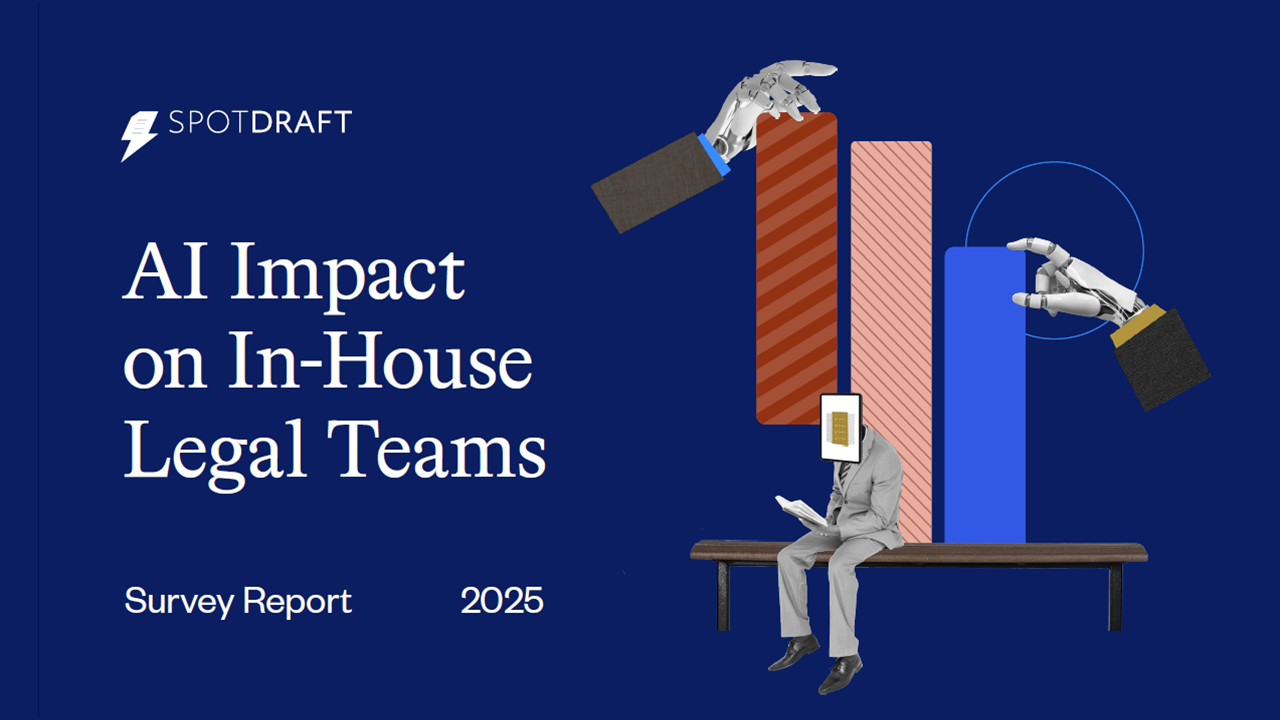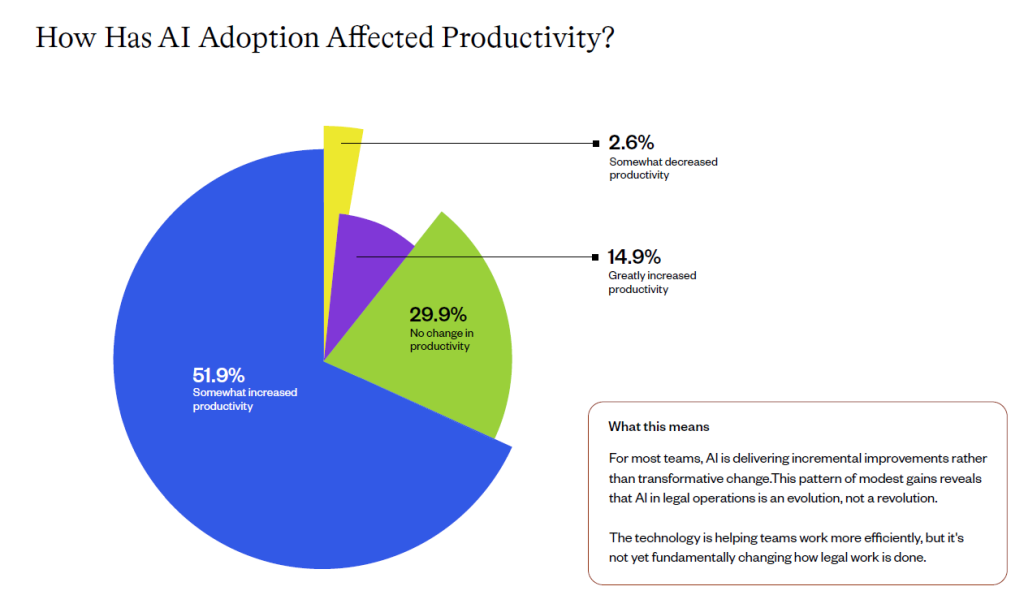Contract management is emerging as the top use case for generative artificial intelligence in legal departments, according to a new survey of in-house legal professionals released today, the 2025 AI Impact on In-House Legal Teams Survey Report.
Conducted by the contract lifecycle management company SpotDraft, the survey finds that a significant majority (70.8%) of legal teams foresee AI-driven transformation in contract management over the next three years. This focus signals a broader shift within corporate legal departments from managing contracts as administrative tasks to leveraging them strategically to support critical business decisions, the survey suggests.
Other legal functions they see AI as significantly transforming over the next three years include automated document analysis ((66.2%), legal research analysis (53.2%), knowledge management (50.6%), regulatory updates (38.3%), e-discovery (35.1%), and compliance monitoring (31.2%).
While contract management stood out as the area where in-house teams see AI as making the most significant impact, when asked which aspects of contract management they would like to see AI improve, they identified clause identification and analysis as the highest priority, with 74% of respondents highlighting its importance.
This was closely followed by contract drafting and template generation (65.3%), real-time alerts for critical dates (56.7%), enhanced repository management (52.7%), and improved support during contract negotiations (52%).
Learn more about SpotDraft in the LawNext Legal Technology Directory.
“The data is clear — contract management is where AI is delivering the most immediate value for legal teams,” Akshay Verma, COO of SpotDraft, said of the survey’s findings. “As teams integrate AI consistently, contracts transform from administrative burdens into strategic assets.
“The teams gaining the most aren’t just automating reviews — they’re unlocking business intelligence previously trapped in contract language and shifting their focus from document management to strategic decision-making.”
Usage Impacts Productivity
In terms of productivity gains from AI, the report finds that, overall, the gains have been incremental, rather than transformative. Only 14.9% say AI has greatly increased their productivity, while 51.9% say it has somewhat increased their productivity. Thirty percent say they have seen no change.
Interestingly, however, usage patterns significantly influence the benefits legal teams derive from AI, the report finds. Among daily AI users, 91% say it has increased their productivity, with almost a third reporting substantial increases. However, these benefits decrease notably with less frequent use. Only 59% of monthly AI users reported productivity improvements. This suggests that those who incorporate AI into their daily work will realize greater benefit.
How does that translate to time savings? When asked to quantify their time savings, 40.7% said they saved 1-5 hours a week, and 20% said they saved 6-10 hours a week.
Barriers to Adoption
The report also addresses ethical concerns associated with AI, revealing what the report describes as a paradoxical finding. Legal professionals who regularly use AI expressed fewer significant ethical concerns compared to those with minimal exposure. To me, this makes sense, suggesting that familiarity and practical experience with AI tools may alleviate anxiety about ethical implications.
Only 4.3% of respondents said they had found it easy to adopt AI. According to the survey, the biggest barrier to AI adoption is the difficulty of integrating it with existing systems and processes (59%). Other major barriers are:
- Data privacy concerns (47.2%).
- Cost of implementation (39.1%).
- Lack of technical expertise (39.1%).
- Unclear ROI (32.3%).
- Uncertainty about how to use or leverage AI (31.1%).
- Resistance from team members and leadership (27%).
Despite ongoing apprehension around AI-related job displacement, the SpotDraft survey found minimal negative impact on employment within legal departments. A substantial 73.5% of surveyed organizations reported no changes in roles or staffing due to AI adoption.
Indeed, many legal teams have grown, leveraging AI primarily to manage larger workloads without proportionally expanding their human resources. This trend suggests that AI can serve as a force multiplier rather than a direct replacement for human workers.
Regarding future skill requirements, the survey respondents identified strategic thinking (30.5%), understanding of AI tools (26.2%), and advanced legal knowledge (20.6%) as the most critical skills necessary for in-house legal professionals. This marks a significant evolution in talent requirements, pointing towards a growing need for roles that integrate robust legal expertise with technical proficiency and strategic insight.
“The future of in-house legal teams will be defined by how they embrace and adapt to AI,” the report concludes. “While the challenges of adoption are real, the opportunities far outweigh the risks for organizations willing to invest in the right strategies, tools, and people.”
The survey’s findings were collected from 192 legal professionals across various industries, predominantly from North America, in partnership with In-House Connect.
For further details and to view the complete report, visit SpotDraft’s website.
 Robert Ambrogi Blog
Robert Ambrogi Blog
